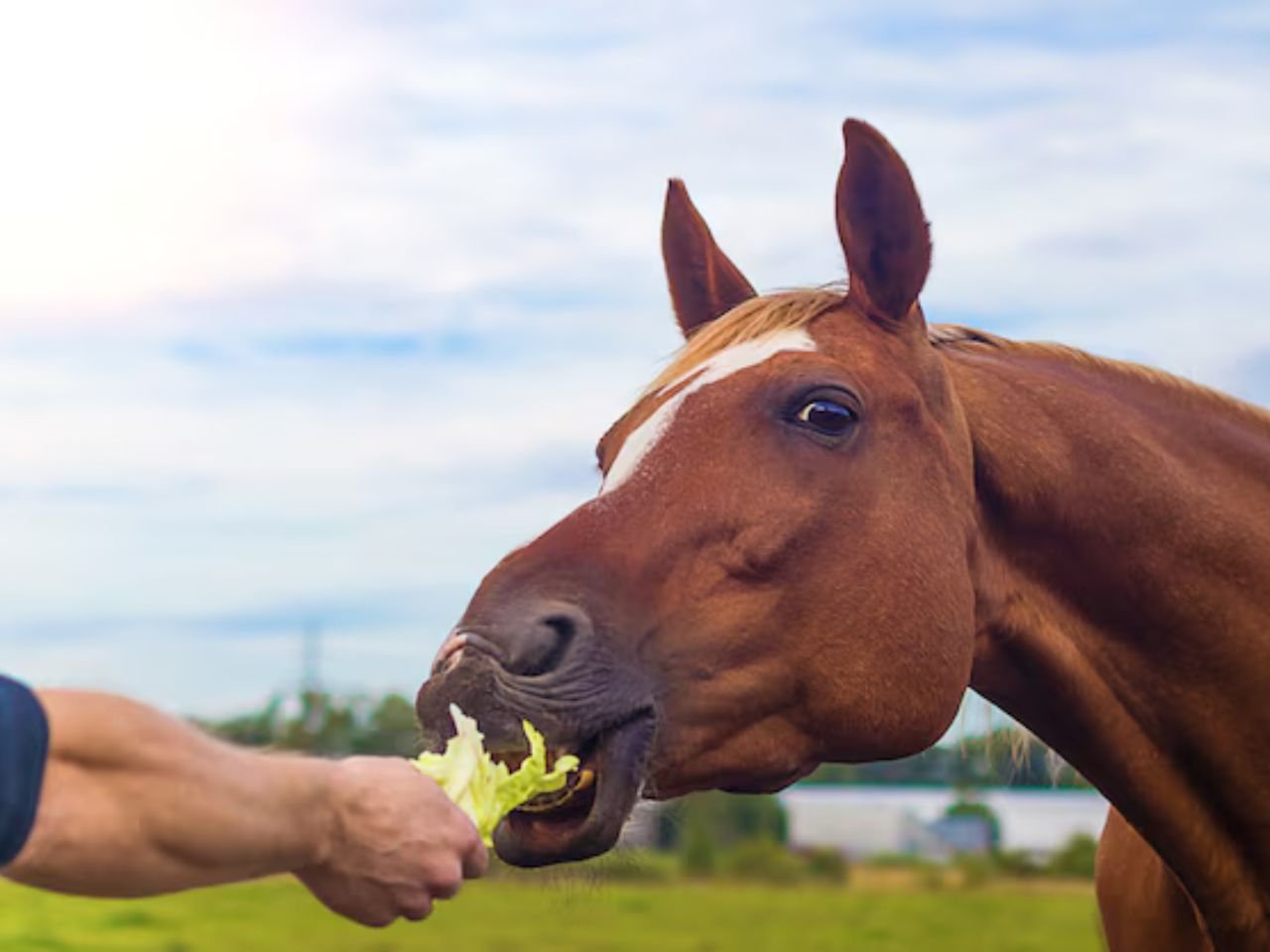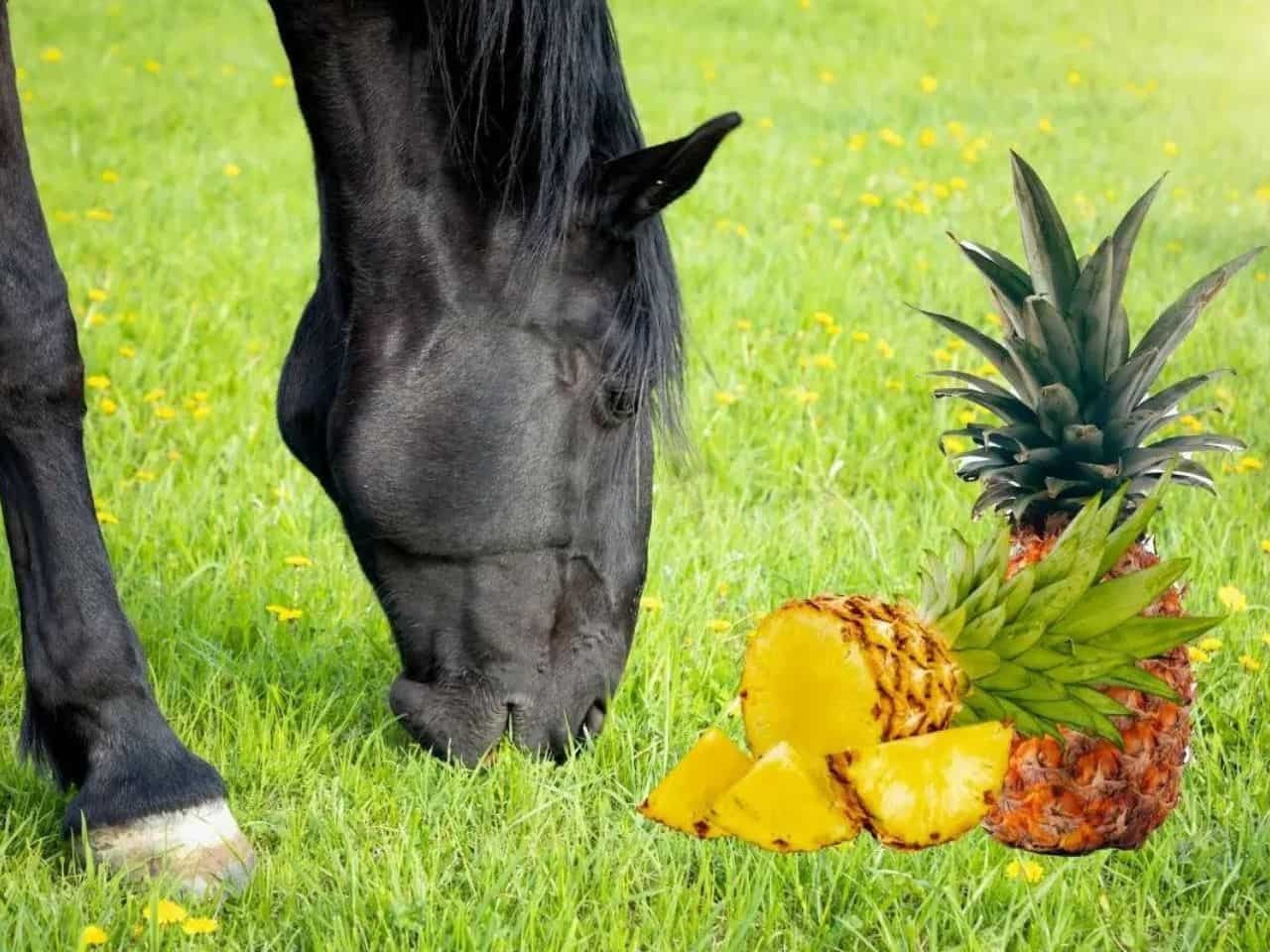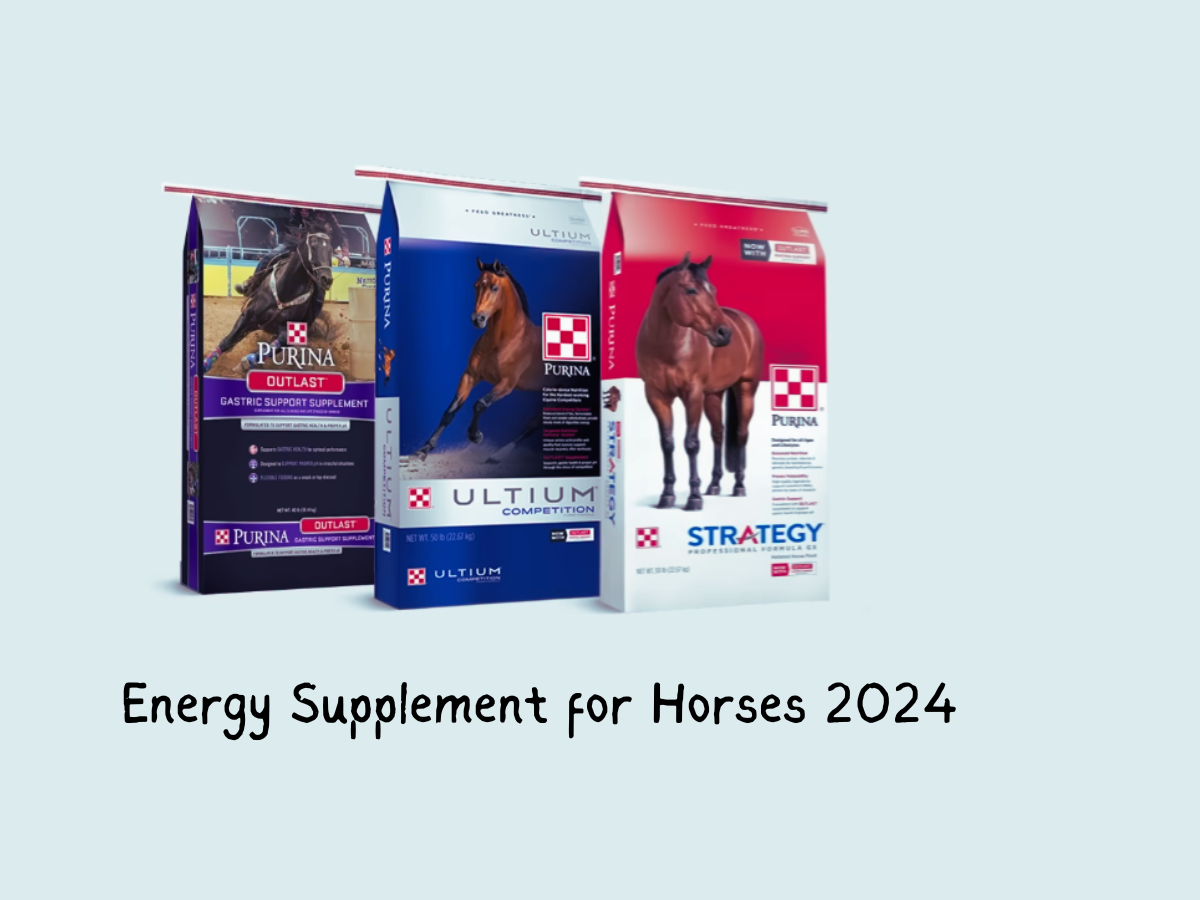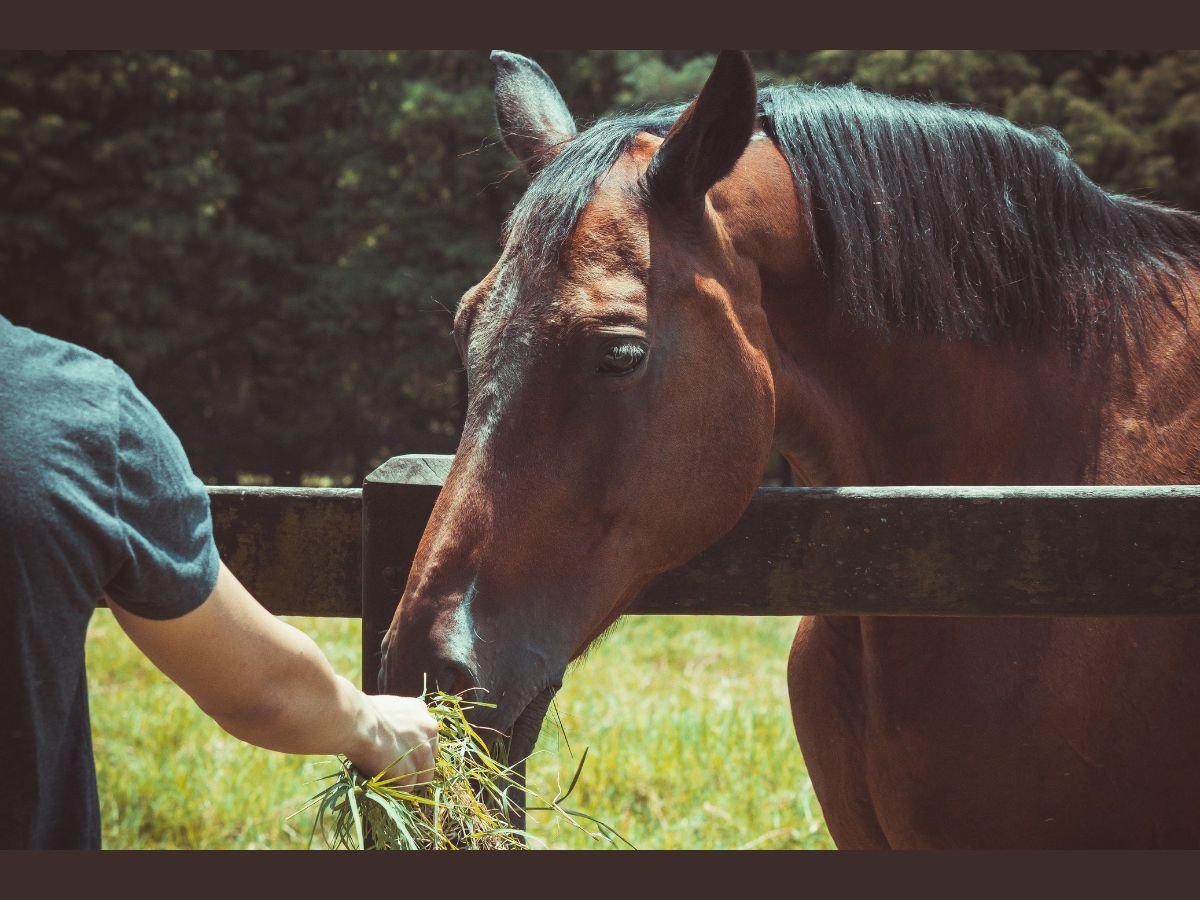Symptoms of too much protein in a horse’s diet include weight gain, increased urination, and potential kidney strain. Excess protein can also lead to an imbalance in nutrient absorption.
Feeding horses a balanced diet is crucial for their health and performance. Overloading their diet with protein can cause several health issues. Horses require a specific amount of protein for muscle development and repair. However, exceeding this amount can lead to adverse effects.
Common symptoms include weight gain, as excess protein gets stored as fat. Increased urination occurs because the kidneys work harder to excrete the surplus nitrogen from protein breakdown. Long-term high protein intake can strain the kidneys, potentially leading to kidney damage. Monitoring and adjusting protein levels in their diet ensures horses remain healthy and perform optimally.
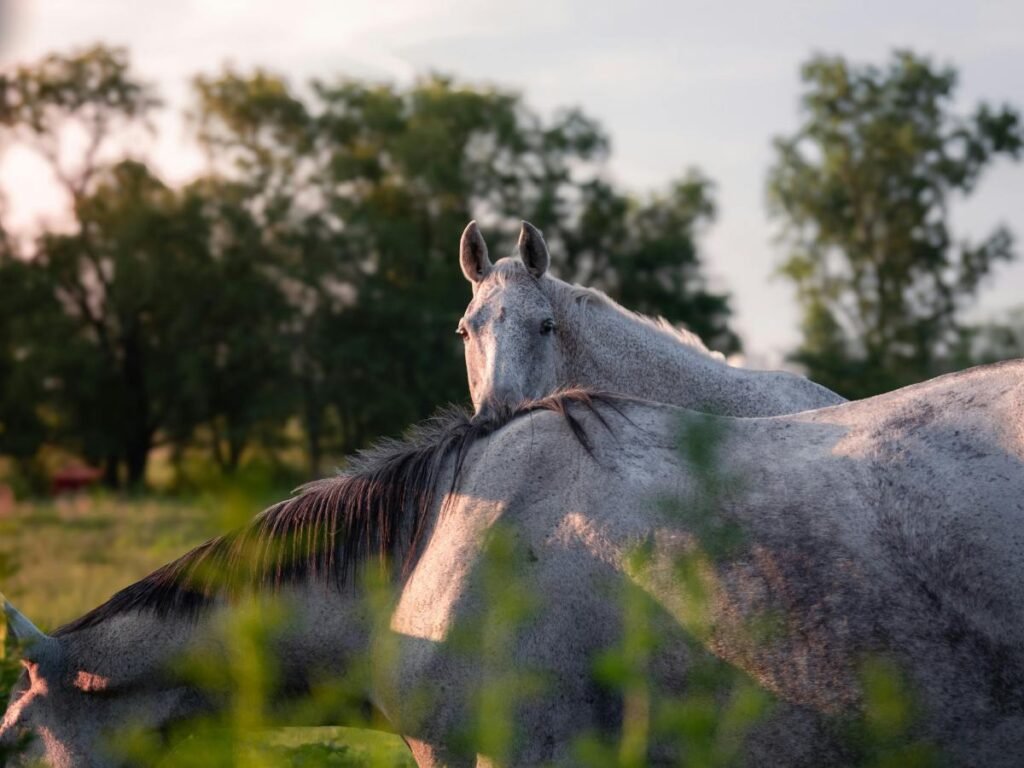
The Role Of Protein In Equine Diets
Protein plays a vital role in a horse’s diet. It supports muscle development, tissue repair, and overall growth. A balanced protein intake ensures your horse stays healthy and active. Yet, too much protein can lead to health issues.
Essential Amino Acids For Horses
Amino acids are the building blocks of protein. Horses need several essential amino acids to thrive. These include lysine, methionine, and threonine.
- Lysine: Supports growth and muscle development.
- Methionine: Helps in hoof and coat health.
- Threonine: Aids in immune function and gut health.
Each of these amino acids must be present in the right amounts. A deficiency can harm your horse’s health, while excess can cause problems too.
Balancing Protein Intake
Balancing protein intake is crucial for your horse’s well-being. Too much protein can lead to kidney strain and other health issues. Signs of excess protein include frequent urination, dehydration, and lethargy.
| Signs of Excess Protein | Description |
|---|---|
| Frequent Urination | Excess protein leads to more urea, causing frequent urination. |
| Dehydration | Increased urination can lead to dehydration. |
| Lethargy | Excess protein can make horses feel tired and sluggish. |
Ensure your horse’s diet has the right balance of protein. Consult a vet or equine nutritionist for tailored advice.
Recognizing Excess Protein
Feeding horses the right amount of protein is crucial for their health. Too much protein can cause serious problems. Recognizing the signs of excess protein helps in keeping your horse healthy. Let’s explore the physical and behavioral indicators.
Physical Indicators
There are several physical indicators that your horse might be consuming too much protein. One of the first signs is weight gain. If your horse is gaining weight without a change in exercise, it might be due to excess protein.
Another sign is excessive urination. High protein levels can lead to the production of more urea, causing your horse to urinate more frequently.
| Indicator | Description |
|---|---|
| Weight Gain | Rapid weight gain without increased feeding. |
| Excessive Urination | Frequent urination due to high urea production. |
Behavioral Changes
Behavioral changes can also indicate too much protein in your horse’s diet. One common change is increased irritability. If your usually calm horse starts showing signs of aggression or nervousness, it might be due to excess protein.
Another behavioral change is reduced performance. Horses fed too much protein may show a decline in their performance, becoming more lethargic and less willing to work.
- Irritability: Increased aggression or nervousness.
- Reduced Performance: Lethargy and unwillingness to work.
Common Sources Of High Protein
Ensuring your horse gets the right amount of protein is crucial. Too much protein can lead to health issues. Understanding common sources of high protein in horse diets helps prevent these problems. Below are some key sources to watch out for.
Forage And Feed Analysis
Forage is a primary source of protein for horses. Alfalfa hay is particularly high in protein. Legume hays like clover also contain significant protein levels. It’s essential to conduct a forage analysis. This helps determine the exact protein content.
Grains such as oats, barley, and corn also contribute protein. Mixed feeds often combine these grains with forage. A feed analysis can show the total protein content. This ensures a balanced diet for your horse.
Supplements And Additives
Many horse owners use supplements to boost protein intake. Soybean meal is a common supplement with high protein levels. Linseed meal and canola meal are also popular choices. These meals can significantly increase protein in your horse’s diet.
Protein additives are another source. Amino acid supplements provide specific proteins. They can help with muscle development. It’s crucial to monitor the overall protein intake. Combining these with high-protein forage and feed can lead to excess protein.
| Source | Protein Content |
|---|---|
| Alfalfa Hay | 15-20% |
| Clover Hay | 14-16% |
| Soybean Meal | 44-48% |
| Linseed Meal | 35% |
| Canola Meal | 38% |
Health Implications Of Protein Overload
Feeding horses an excessive amount of protein can lead to severe health issues. Knowing the symptoms and risks can help you maintain your horse’s well-being. Below, we explore the two primary health implications of protein overload in horses.
Kidney Stress And Damage
Excessive protein intake can put significant stress on a horse’s kidneys. The kidneys work hard to filter out the excess nitrogen produced from protein breakdown.
This increased workload can lead to kidney damage over time. Signs of kidney stress include frequent urination and increased water intake. In severe cases, the horse may suffer from kidney failure, leading to further complications.
| Signs of Kidney Stress | Implications |
|---|---|
| Frequent urination | Indicates kidneys are working overtime |
| Increased water intake | Body trying to flush out excess nitrogen |
| Kidney failure | Leads to severe health issues |
Metabolic Disturbances
Metabolic disturbances occur when there is too much protein in the diet. This can upset the horse’s natural metabolic balance.
Excess protein can also lead to weight gain and muscle stiffness. These issues can make it difficult for the horse to move and exercise comfortably.
- Weight gain: Extra protein converts to fat, leading to obesity.
- Muscle stiffness: Excess protein can cause muscle fibers to become tight and less flexible.
Maintaining a balanced diet is crucial for your horse’s health. Always consult a veterinarian or equine nutritionist to ensure proper protein levels.
Assessing Protein Requirements
Understanding the protein needs of horses is crucial for their health. Too much protein can cause serious health issues. This section helps you assess the right protein requirements for your horse.
Age And Activity Level
Different horses need different amounts of protein based on their age and activity level. Young horses, senior horses, and those with high activity levels have unique protein needs.
- Foals and Young Horses: They need more protein for growth and development. Their diet should include high-quality protein sources.
- Adult Horses: Their protein needs depend on their activity level. Horses in heavy work or training need more protein than those with light exercise.
- Senior Horses: Older horses may have difficulty digesting protein. Their diet should be adjusted to ensure they get enough protein without overloading their system.
Calculating The Right Amount
Calculating the right amount of protein involves understanding the horse’s weight and activity level. Use a simple formula to determine the daily protein requirement.
| Horse Type | Protein Requirement (% of body weight) |
|---|---|
| Foals | 16-18% |
| Adult Horses (Light Work) | 10-12% |
| Adult Horses (Heavy Work) | 12-14% |
| Senior Horses | 10-12% |
For example, a 500 kg adult horse in light work needs 10-12% protein. This equals 50-60 grams of protein per day. Always ensure the protein comes from high-quality sources.
Monitoring your horse’s diet helps prevent health issues related to excess protein. Regularly check their weight and activity level to adjust their diet accordingly.
Adjusting The Diet Safely
Recognizing the symptoms of too much protein in a horse’s diet is the first step. The next step involves adjusting the diet safely. This ensures the horse remains healthy and performs well. Proper dietary adjustments can prevent potential health issues and improve overall well-being.
Reducing Protein Intake
To reduce protein intake, evaluate the current feed. Check the protein content in each component of the horse’s diet.
- Analyze Forage: Test the hay or pasture to determine its protein level.
- Adjust Grain Mix: Choose grains with lower protein content.
- Limit Supplements: Cut back on protein-rich supplements.
Reducing protein gradually helps prevent digestive problems. Ensure the horse still gets all the necessary nutrients.
Alternative Nutritional Strategies
If reducing protein isn’t enough, consider alternative nutritional strategies. These methods provide balanced nutrition without excess protein.
- Increase Fiber: Add more forage or beet pulp to the diet.
- Balance Energy: Use fats like vegetable oil to provide energy without protein.
- Vitamins and Minerals: Ensure the horse gets enough vitamins and minerals through a balanced supplement.
Implementing these strategies can help maintain a healthy diet. Monitoring the horse’s condition regularly ensures the diet meets its needs.
| Nutrient | Source | Benefit |
|---|---|---|
| Fiber | Hay, beet pulp | Improves digestion |
| Fats | Vegetable oil | Provides energy |
| Vitamins & Minerals | Supplements | Ensures balanced nutrition |
Monitoring Your Horse’s Health
Monitoring your horse’s health is crucial to ensure they are thriving on their diet. Too much protein can lead to severe health issues. Keeping an eye on your horse’s symptoms and behavior is essential.
Regular Veterinary Check-ups
Regular veterinary check-ups are essential. A vet can spot early signs of protein overload. They can also suggest diet adjustments.
During check-ups, vets perform various tests. These tests can include:
- Blood tests
- Urine tests
- Physical examinations
These tests help in identifying any underlying issues. Early detection can prevent severe health problems.
At-home Observations
Observing your horse at home is equally important. Look for signs of too much protein in their diet.
Key symptoms to monitor:
- Weight gain
- Excessive urination
- Lethargy
- Hoof problems
Make it a habit to check your horse’s daily behavior. Any changes can indicate health issues.
| Symptom | Description |
|---|---|
| Weight gain | Sudden weight gain can be a sign of too much protein. |
| Excessive urination | More frequent urination indicates kidney stress. |
| Lethargy | Lack of energy can result from dietary imbalance. |
| Hoof problems | Poor hoof health often relates to dietary issues. |
Keeping a daily journal can help track these symptoms. This information is valuable for your vet.
Regular monitoring and vet check-ups are key to a healthy horse.
Case Studies: Recovery From Protein Excess
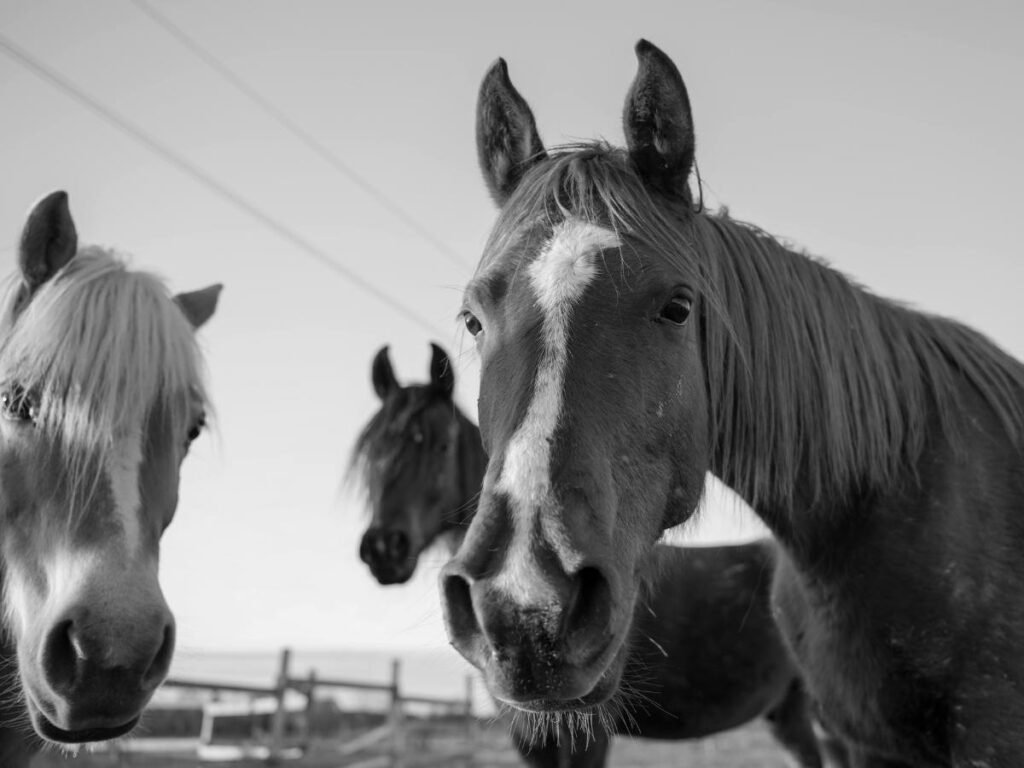
Excess protein in a horse’s diet can lead to serious health issues. To understand recovery from this condition, we studied various cases. These real-life examples show how dietary changes and management plans helped horses regain their health.
Dietary Adjustments And Outcomes
Dietary adjustments play a critical role in recovering from protein excess. Below is a table highlighting some key changes and their outcomes:
| Case Study | Dietary Adjustment | Outcome |
|---|---|---|
| Case 1 | Reduced protein intake by 20% | Improved kidney function |
| Case 2 | Switched to low-protein forage | Decreased ammonia smell in urine |
| Case 3 | Added balanced mineral supplements | Better coat condition |
In Case 1, reducing protein intake by 20% led to improved kidney function. In Case 2, switching to low-protein forage significantly decreased the ammonia smell in the horse’s urine. Case 3 saw better coat condition after adding balanced mineral supplements.
Long-term Management Plans
Long-term management plans are essential for maintaining a horse’s health post-recovery. Here are some key strategies:
- Regular veterinary check-ups to monitor kidney function and overall health.
- Consistent diet analysis to ensure balanced nutrient intake.
- Adequate hydration to support kidney function and flush out excess protein.
- Exercise routines to help manage weight and improve overall well-being.
Regular veterinary check-ups help in monitoring kidney function. Consistent diet analysis ensures a balanced nutrient intake. Adequate hydration supports kidney function and helps flush out excess protein. Lastly, exercise routines help manage weight and improve overall well-being.
FAQ about Symptoms of Too Much Protein in Horses Diet
What Is The Signs And Symptoms Of High Protein?
High protein symptoms include dehydration, digestive issues, nausea, fatigue, irritability, and bad breath. Excess protein can also strain kidneys.
Can High Protein Cause Laminitis?
High protein itself does not cause laminitis. Excessive intake of non-structural carbohydrates and other factors can trigger laminitis. Always consult a vet.
Can Too Much Protein Cause Colic?
Yes, excessive protein can cause colic in some individuals. Balance your diet to avoid digestive issues. Consult a doctor if symptoms persist.
Recognizing symptoms of too much protein in a horse’s diet is crucial. Excessive protein can harm their health. Monitor your horse’s diet and adjust accordingly. Consult a veterinarian for tailored advice. Ensuring a balanced diet promotes overall well-being and optimal performance.
Keep your horse healthy and thriving with proper nutrition.
